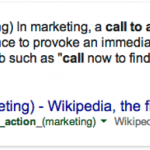How to Write Killer Website Copy
Words are all around us. They cover every surface, they greet us at every turn, and they’re constantly floating around inside our heads. Seldom does a day go by when one doesn’t have to string some words together to form a coherent sentence, but somehow, when it comes to sitting down and trying to convince strangers of a great idea – especially in writing – we all too often clam up.
Many businesses hire writers to get the dirty work of copy-writing for their websites done, but if you’re willing and ready to go it alone, be sure to read up on these 11 key tips on how to write killer copy for your website:
1. Keep it Short
Short, Simple, and Succinct: These are the three S’s that should hiss in the back of your head throughout the copywriting process. With limited attention spans, your audience needs to understand what your website is all about, and why they should be there within a few seconds.
Try these quick tips:
-
Avoid commas in favor of new sentences.
-
Keep your paragraphs to a maximum of two or three sentences. You’re writing website copy, not a PhD thesis.
-
If a sentence takes more than one breath to say, it’s too long. Repeat your sentences aloud in your normal voice. Does they sound forced, unnatural? Overly complicated? If so, try breaking the sentence up.
2. Use Action Verbs and Personal Pronouns
For eCommerce websites, instilling a sense of urgency in potential customers is key. While there are plenty of ways to ramp up the conversion process through copy, two of the most popular strategies are to begin sentences with action verbs and personal pronouns (such as “we” and “you”).
Action verbs replace any hint of uncertainty, and encourage potential customers to act by sounding more like a direction (or an order) rather than a gentle reminder. Addressing customers with personal pronouns, meanwhile, helps give the impression that you already understand their needs, and that you are speaking to them directly.
3. Use Simple Words
One common mistake in writing is to use words simply for the purpose of making a sentence sound more grandiose. Thesaurus in hand, this haplessly florid writer tends only to succeed only in confusing the hell out of everyone who reads their writing. Stick to simple, universally understood words when it comes to copywriting – and “trim the fat” at all possible opportunities.
Try replacing these words with their more concrete synonym:
-
Replace accomplish with do
-
Replace utilize with use
-
Replace rationale with reason
…And be sure to use specific words in the place of general words; for example, instead of writing “several”, or “many”, write the actual number or statistic.
4. Pay Attention to SEO keywords
Broadly speaking, your website’s SEO is determined by the relevancy of your content to search results. When writing copy for your website, stay aware of the kinds of keywords that your audience might use to search for your services. To learn more about how to identify the right keywords for your market, take a look at this article by Rand Fishkin over at SEO Moz.
5. Repeat Yourself
When we learn to write in school, repetition is painted as an enemy of the essay, in which no word or idea should be repeated twice. When it comes to writing website copy, a healthy (not oversized) dose of repetition can actually help to reinforce the most important aspects your message. Web audiences are very good at skimming for crucial information, not at pouring over your content word by word. Reiterating your message in key spots helps to make sure that no piece of information is lost in a dark corner.
6. Be Clear
There is a plague running rampant across the web, one in which websites tell you why you can’t live without their services even before explaining what it is exactly that they offer.
Website copy needs to be creative, but it also has to communicate a message. Instead of speaking about “dozens” and “millions”, provide an exact number. Instead of focusing solely on your value proposition (the value your service has to customers), try explaining – in simple terms – how you do what you do. In all cases, look for the most transparent, most straightforward way to explain yourself first. Only once this is in place can you begin to experiment with more creative language and phrasing.
7. Be Daring
Imagine sitting down to read 500 essays on the history of the fork. Of these five hundred essays, 495 of them are written almost identically, 2 are totally incomprehensible, and the remaining 3 try writing about the history of the fork from a different angle (be it through language, or ideas). These 3 essays, as you’ve probably guessed, are the most enjoyable to read.
For your audience, sifting through dozens of websites offering nearly identical services amounts to about the same experience. If you want to grab your audience’s attention early, you’ve got to stand apart from your competition.
-
Consider what makes you stand out. Do you offer a service that your competition does not?
-
Try out new language. Do your competitors speak in a formal tone? Try making your language a bit more casual.
8. Brainstorm
Writing website copy needn’t be a solitary process, even when you work alone. If you work in a team, sit down with them before beginning the writing process, and brainstorm keywords, ideas, and phrases that describe what you do in simple, easy-to-understand terms. If possible, send an email around to colleagues the week before, asking them to jot down any ideas they have before the meeting that might come up during their daily grind.
If you work alone, gather a bunch of friends, and give them a short presentation about your work, in which you describe what you do, how you do it, and why it matters. Ask your friends to provide feedback on aspects of your presentation that weren’t clear, or words that might need to be clarified. You’ll be surprised how a simple conversation can help to clarify your ideas.
9. Do Your Research
Brainstorming amongst colleagues and friends is a great way to find initial concepts and build your own personal branding language, but it can also narrow your focus, causing your copy to miss out on important details. Before you start the copywriting process, take time to do some thorough research: interview existing clients, speak to potential ones about what they’re looking for, and check out the language your competition is using. Compile a set of common keywords, useful ideas, and phrases, and use these in your copy.
10. Let Your Customers Speak on Your Behalf
No copy can be as convincing as words that come straight from from the mouth of a satisfied customer. As part of your research process, ask existing clients or businesses you’ve collaborated with to provide a quote about your services to use on your website. Do be sure, though, to get written confirmation that your client is willing and able to provide a quote, especially if they represent the interests of their employers.
11. Proofread, Proofread, Proofread
Few situations are more disappointing than seeing your new website go live only to spot typo after typo in the final copy. Before you publish your writing, comb through each sentence with a fine-toothed comb.
Here are some tips from an expert proofreader:
-
Leave your writing for a day: When writing copy, we often become so immersed in ideas that we become blind to mistakes. Once you feel that your copy is perfect, leave it for a day. When you come back to it with a fresh pair of eyes a day or two later, you’ll be sure to catch a mistake or two.
-
Read backwards: When reading over text, our eyes have the tendency to revert to skimming – looking for important information and discarding lesser words and ideas. To avoid falling into this trap, try reading your text from bottom to top. Removing the context of the last sentence from the one your reading will help to keep your brain focused on mistakes.
-
Ask a friend (or a professional): Even the most diligent of proofreaders lose sight of mistakes here and there. Before your site goes live, ask a particularly detail-oriented friend or colleague to scan your text for errors. If no nit-picky, type-A friends are available, consider hiring a professional proofreader.
Image Credits
Clever Girl by liquene at Flickr Creative Commons
Most Recommended Articles:
About Bee Kay
Bee Kay is an artist and writer with a knack for writing about the intersections between web design and everyday life.








































